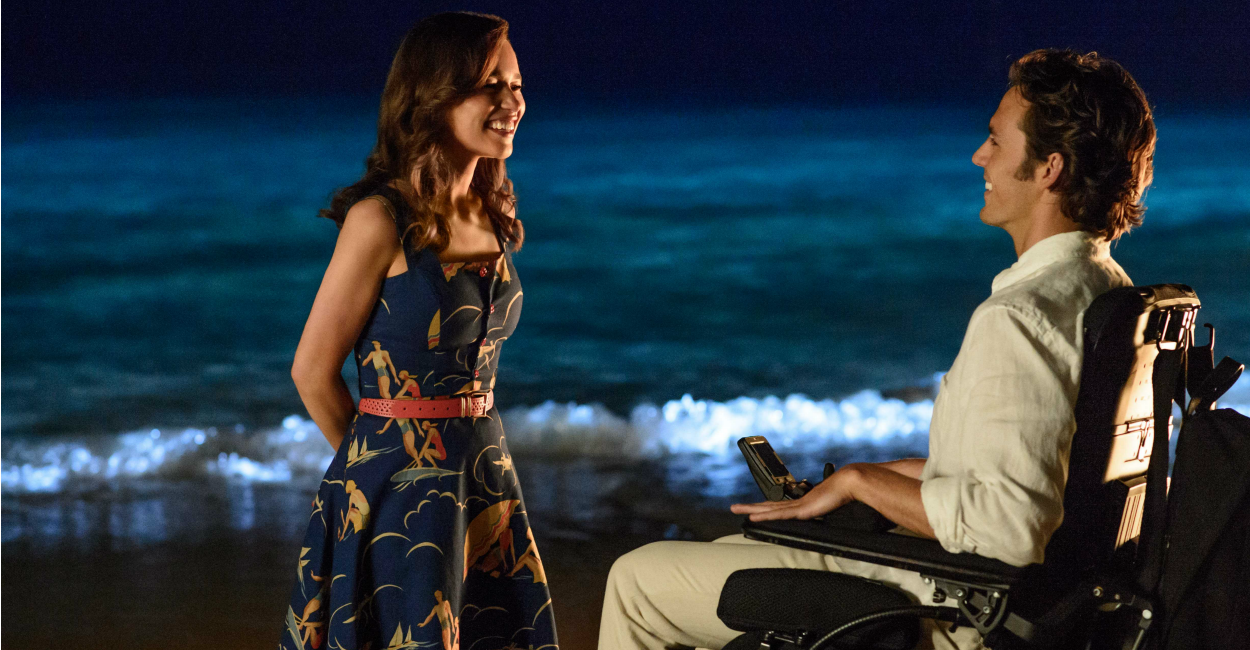The romantic drama Me Before You hit Australian cinemas on June 16. However, while likened to a glossy, live-action Beauty and the Beast, the drama has come under fire by disability campaigners for its offensive depiction of quadriplegia.
Spoilers ahead!
First of all, for those unfamiliar, the film centers on the story of Louisa “Lou” Clark (Game of Thrones actress, Emilia Clarke), a provincial English country girl hired on a six-month contract as a caregiver for Will Traynor (Hunger Games actor Sam Claflin), an absurdly wealthy quadriplegic man. But when Lou finds out that Will wants to commit physician-assisted suicide, she takes on a personal mission to change his mind.
Yet, despite her efforts to save her love interest, Will ultimately chooses to end his own life at the end of the film. Which is entirely rooted in that fact that he can’t stand to live as a disabled man. Though, while we hear of Will’s pain and suffering through dialogue, the film fails to explore the nature of Will’s immovable despair, and shows us none of the “ugly” stuff. Allowing the hateful trope of being “confined to a wheelchair” to be a prominent player in his decision to kill himself.

JoJo Moyes, screenwriter and author of the book, defends the film by arguing that it’s entirely fictional and that only one person’s story is being told. Beyond the all too familiar devices found in love stories, the underlying message is something much darker. As disability representation on film and television remains extremely scarce, Me Before You reinforces existing stereotypes about people with disabilities– reaffirming the narrative that a reduction in physical capabilities justifies death.
By skimming over the more complex issues to do with disability and assisted suicide, while also cheating us of a suitably satisfying resolution, the value of a disabled life is diminished. Will insists that the nature of his disability means that he unable to “live boldly”. In light of this, the disability community, determined to fight for full social inclusion, is making itself heard through the successful hijacking of the #MeBeforeYou and #LiveBoldy Twitter hashtags. Letting it be known that their lives are worth living.
i #LiveBoldly by actually being alive and spreading positivity and awareness when i can! pic.twitter.com/hbLDY3gvk3
— ♿️💊 madison 🐘📷 (@monoqueenmadi) May 26, 2016

